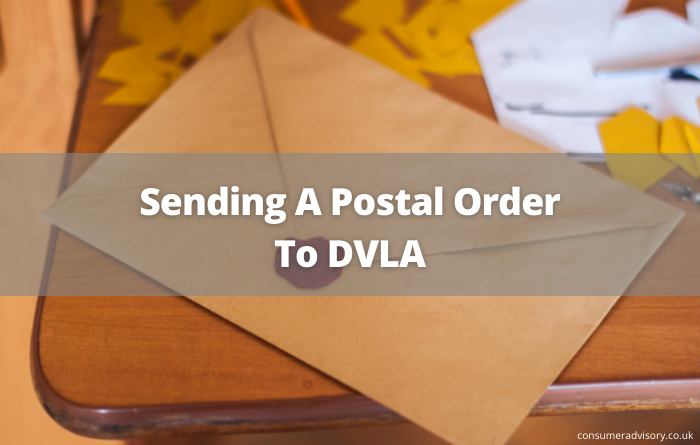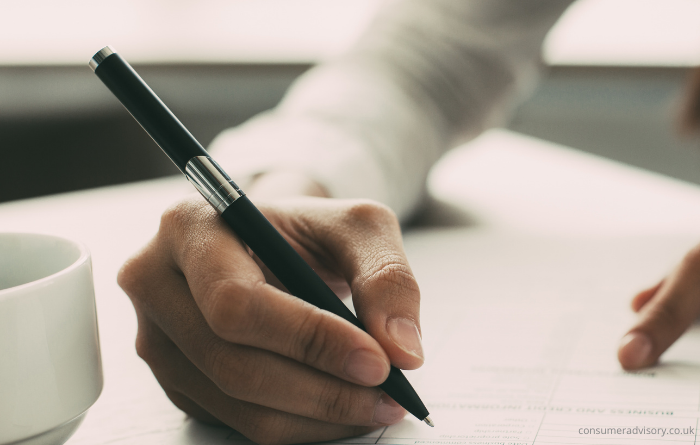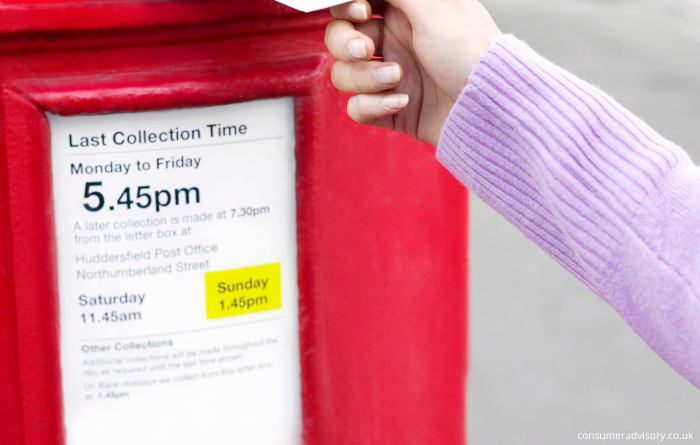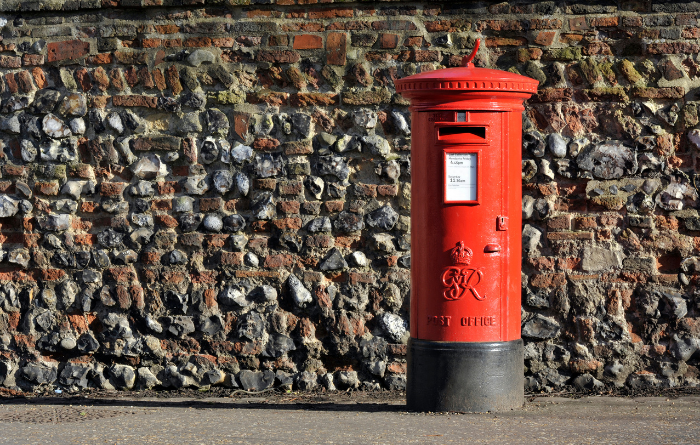
It’s straightforward to send a postal order to DVLA. You can purchase a postal order from any post office that offers banking services. However, there are fees involved with this, which are dependent on the amount that you’re sending.
In this article, we’ll explain the process of using a postal order to send money to the DVLA, including discussing when you might choose to use a postal order instead of a cheque, and the benefits associated with postal orders.
It is perfectly acceptable to send a postal order to the DVLA to pay money that you owe. Whilst this isn’t a common method of payment, there is nothing to stop you from doing so, and the DVLA happily accept this method of payment.
In the past, postal orders were a popular way to send money. However, they were quickly overtaken by cheques and later bank transfers and online payment methods. Whilst postal orders are not as common as they used to be, this is still a payment method that is accepted by the DVLA.
You might choose to send a postal order if you do not have a bank account, or if you don’t have a cheque book. This is because you do not need a UK bank account to purchase a postal order – you can simply purchase it from the post office and send it to the DVLA.
Some people may also opt for sending a postal order if they are wary of giving out their bank details. This is because postal orders do not contain any identifying information, unlike cheques. So, you can rest assured that your personal and financial information is safe when you use a postal order.

When you purchase a postal order, the post office clerk will give it to you blank. To fill out your postal order, you’ll need to complete the following sections:
1. The payee – this is the entity that you are sending money to. In this case, it’s the DVLA.
2. The address of the payee – this would be the address that you are sending your postal order to.
3. The value – this is how much money you are sending to the DVLA.
4. Your name and address – this is where your postal order will be sent from. So, write down your address here.
5. The postal order number – the post office clerk will provide you with this.
6. Your signature – after filling out all of the fields, sign your postal order. This signifies that you are authorising the payment to go through.
You might be wondering how much it will cost to send a postal order to the DVLA. There is no set fee associated with sending a postal order, as it will depend on the amount that you are paying.
Typically, if you want to purchase a £5 or less postal order, the fee will be 50p. For postal orders between £5 and £9.99, the fee will be £1. For postal orders between £10 and £99.99, the fee will be 12.5% of the purchase price. If you purchase a postal order for a value above £100, right up to the maximum of £250, you can expect to pay a set fee of £12.50.
If you want to pay the DVLA via postal order, you might be wondering where you can purchase a postal order from. You can get a postal order from any post office that offers banking services. If you’re unsure, it’s best to ring your local post office before making the journey to ensure that they offer postal orders.

Although postal orders are not as common as they once were, you can still purchase these from the post office. Furthermore, they are valid forms of payment for places that specifically accept them, such as the DVLA.
If you’ve been sent a postal order, you might be wondering where you can cash it in. You can do this at any post office or bank. Typically, post offices and banks will only give you the funds from your postal order if they have been cashed within three months of being issued, so you’ll need to make sure you cash in your postal order in good time.
You may be wondering if you can cash in your postal order at the bank. The answer to this is that not all banks will accept postal orders, but some may do.
Typically, more modern high street banks will offer banking services for post offices and will therefore also cash in postal orders. For example, Barclays currently offers direct payment services for postal orders.
If you’re unsure whether or not your local bank will accept postal orders, it’s worth ringing them up before making the journey to ensure that they will.
If you’re wondering where you can send your postal order to, the DVLA will accept postal orders sent to this address: DVLA, Swansea, SA99 1DD.

If you’re purchasing a postal order to send money to an organisation or person, you might be wondering whether there is a limit to how much money you can send by postal order.
The maximum value of a postal order is £250. If you need to send more than this, you will need to purchase a second postal order to cover the excess.
If you want to purchase a postal order and send it off in time to meet a deadline, you will need to get your postal order in good time.
In the UK, the deadlines for purchasing postal orders are around 3pm for First class delivery means that your postal order should arrive at the destination the next day. However, this is not guaranteed, as sometimes it can take longer to arrive. For First Class Special Delivery, your postal order will arrive by 1pm the next day.
You can find out more about these services online, through the Post Office website. If you require a postal order to be sent with one of these special delivery means, it is worth specifying this when you hand over your postal order at the post office counter. They will be able to give you suggestions of the best postal service to use to ensure that your postal order reaches its destination in plenty of time.
Whether or not you can track your postal order will depend on the delivery service that you choose. For standard first or second class delivery, you will not usually be able to track your postal order. However, if you opt for a tracked service such as Royal Mail Special Delivery, or a signed for service, you will be able to track your postal order to its destination.
You might wonder how long a postal order will take to clear before you can spend the money from it.
There are two types of postal order – crossed and uncrossed. An uncrossed postal order can be converted directly into cash at the post office, so that you can spend it immediately. However, crossed postal orders must be paid into a bank account, so you’ll need to wait for them to clear.
Whilst most postal orders will clear into your bank account within 1-2 working days, some may take slightly longer. You can expect to see the money in your account within a week of cashing in your postal order.
The DVLA postal address is not free. This means that you will need to attach a stamp to the envelope before posting a letter to the DVLA. This stamp needs to cover the postage of the package, otherwise it may not reach the addressee, so it’s important that you check the size and weight of the package to ensure that the attached stamp covers the required postage before posting to the DVLA.
When you get a new driving licence, you will need to post your old licence back to the DVLA. When you complete the application, you will be provided with the address to which you will need to return your old driving licence to. You will be asked to cut the licence in half before posting it, to prevent it from being used fraudulently.
As more drivers switch to electric vehicles (EVs), dealing with the DVLA often coincides with home energy upgrades, such as installing chargers or battery storage. For example, Sunsynk’s 5.32kWh IP65 battery is a popular solution among EV owners looking to store solar energy and reduce grid reliance.
Postal orders were once a popular way to send money in the UK. However, they have slowly been overtaken by cheques, bank transfers and online payments, which now dominate the financial world.
It is still possible to send a postal order to DVLA, and you may choose to do so if you don’t have a bank account or are worried about your financial information being on display.
Copyright © 2025 Consumer Advisory. All rights reserved.